Marion County gets serious about littering/illegal dumping, considers big boost in fines
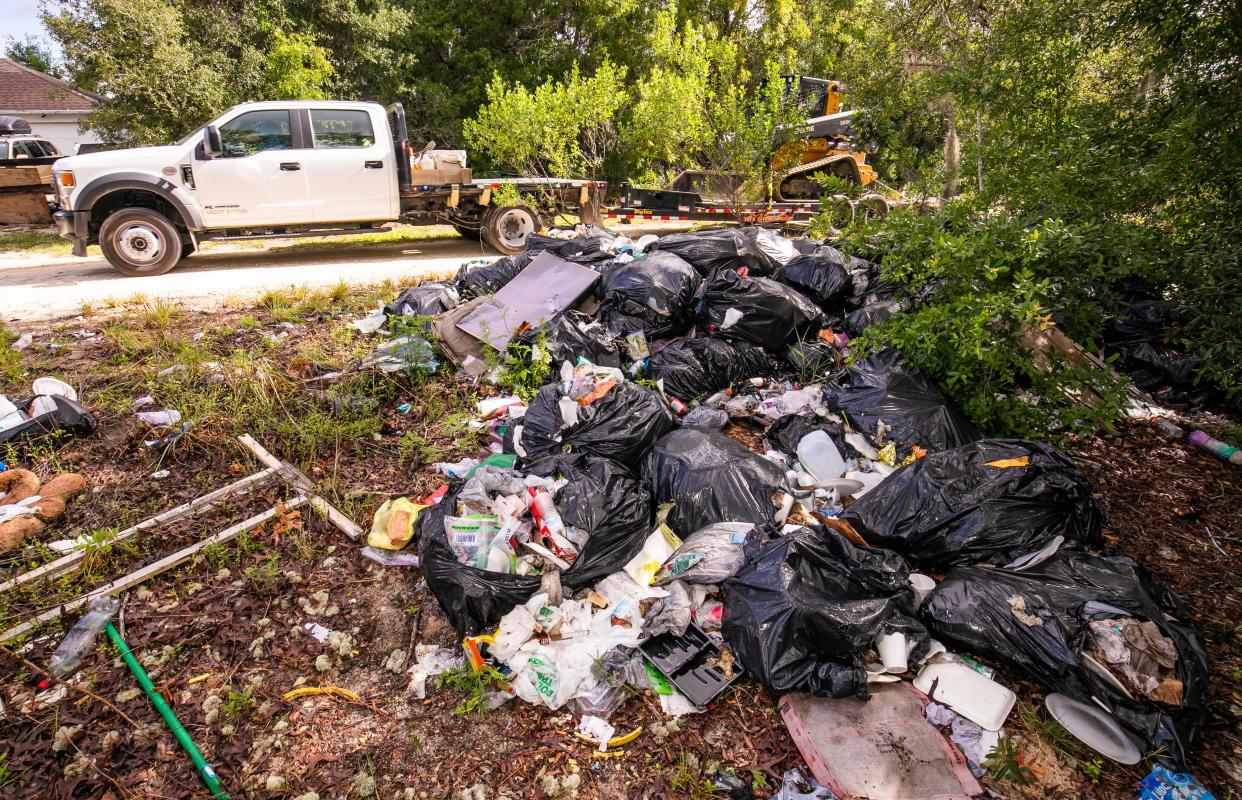
Over 1.4 million pounds of litter were picked up in Marion County in 2021, a number that highlights the ongoing litter problem the area is facing.
In an effort to combat the issue, area residents may soon be seeing more of “Marion” the horse and “Rubbish” the raccoon – two mascots for the Marion County Litter Task Force’s proposed “No Horsin’ Around with Marion” campaign.
The mounting threat to Marion County’s health and beauty prompted county commissioners last year to assemble the Litter Task Force. Several months of meetings and research culminated in a final report presented to the commission on Tuesday. The report proposed the campaign, harsher penalties for dumping, and more community engagement.
North extension of Florida's Turnpike? Chambers of commerce at odds with some elected bodies
FWC changes captive wildlife permit rule: Reptile, animal keepers want more clarity
Heagy-Burry improvements: Boat ramp and park at Orange Lake to undergo nearly $2 million in renovations
“The surveys that have been done show that over 90% — probably in the 95th percentile — of respondents think (litter) is a major problem in Marion County, so who better to solve a community problem than the community?” Commissioner Craig Curry, who acted as liaison to the task force, said.
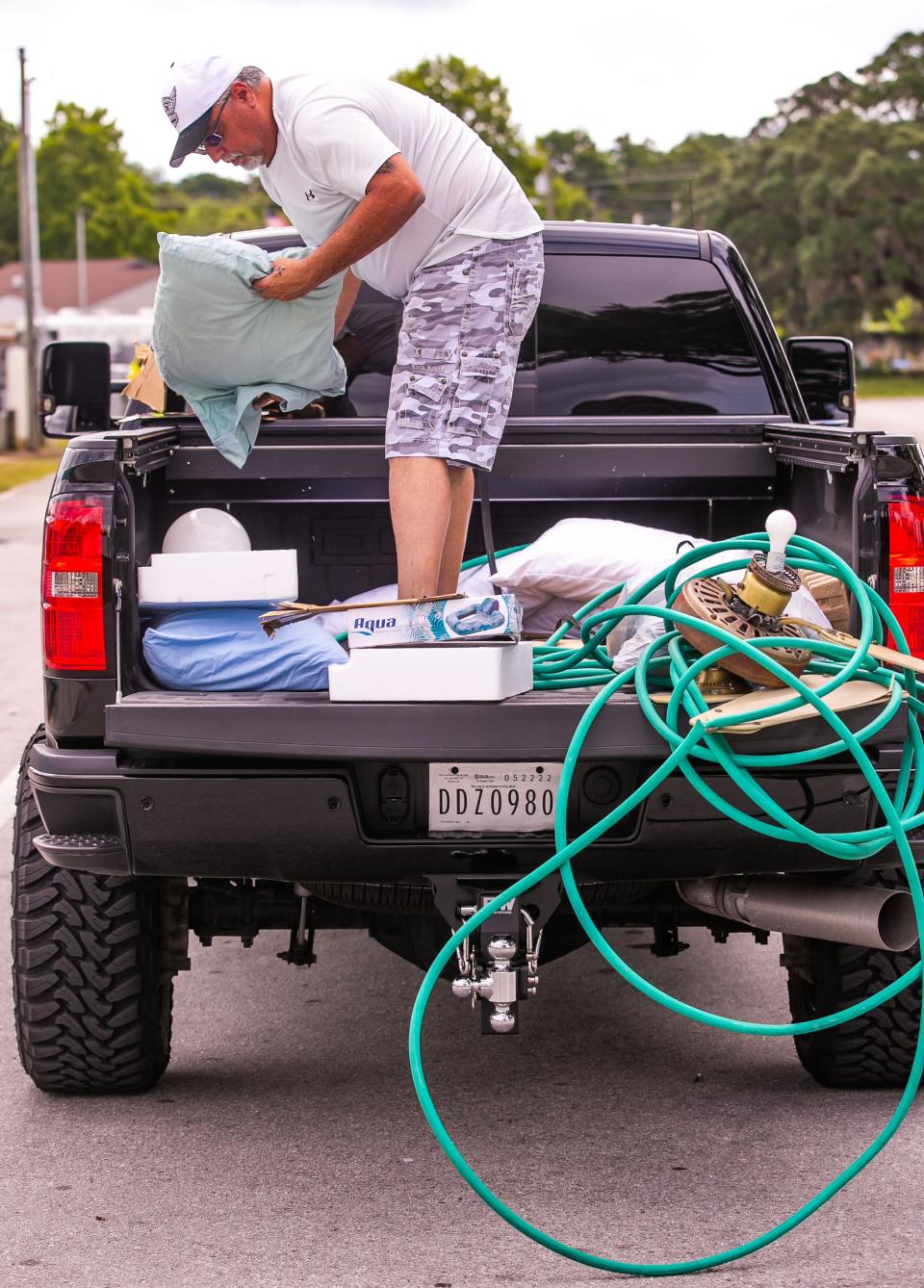
The task force, which first met last September, was chaired by Beth McCall and included four committees of local residents focused on community outreach, marketing, enforcement, and fiscal responsibilities.
“There is no one on this task force who doesn’t believe that this is truly a problem in Marion County that we need to solve,” McCall said. “We have a beautiful county, and when you go down and see all the trash and all the dumping that happens, it’s really heart wrenching to all of us.”
Task force will target student and community engagement
The task force is taking on a mission to change the behavior of Marion County residents and visitors, improve quality of life, and protect the county’s natural resources by enlisting the community to eradicate litter and illegal dumping.
The Community Outreach and Education Committee, chaired by Marion County Public Schools Community Engagement Director Lauren Debick, identified over 250 locations and 50 presenters – including elected officials, celebrities, students and business owners – who could discuss the impact of litter during speaking engagements in the community.
“This is not just about cleaning up litter,” Debick said. “This is about changing the mindset and behavior of both community members and visitors to prevent litter from even occurring.”
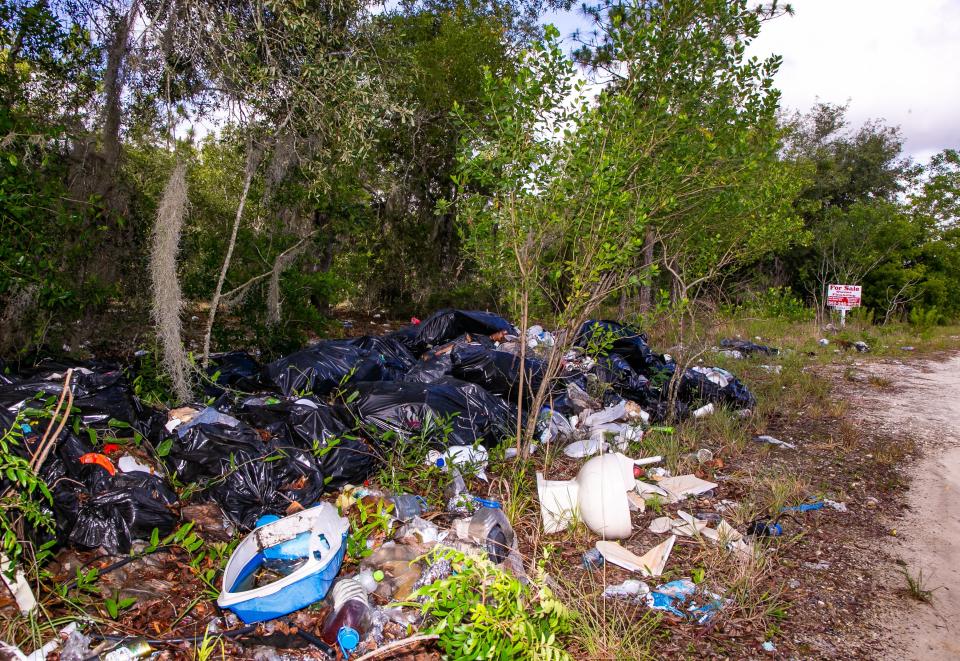
The committee suggested a litter awareness week, litter hero award, litter free pledge, youth ambassador program, children’s books, decorated trash cans and a video contest to promote community and student engagement in recycling and properly disposing of trash.
"I can tell you the interest is there and the desire is there to make Marion County litter free for everyone,” she said, noting that many students have expressed interest.
Commission could increase fines against illegal dumping
The Ordinance and Enforcement Committee, led by State Attorney Bill Gladson, relayed research on current county ordinances and enforcement codes in Marion County and other municipalities.
The committee noted the most common types of litter are illegal commercial and personal dumping, people throwing trash from vehicles, and litter blowing out of vehicles and trucks.
Several entities have the authority to enforce litter laws, including the Marion County Sheriff’s Office, Ocala Police Department, Belleview Police Department, Dunnellon Police Department, Florida Fish and Wildlife Conservation Commission, Florida Highway Patrol, Marion County Solid Waste and Marion County Growth Services.
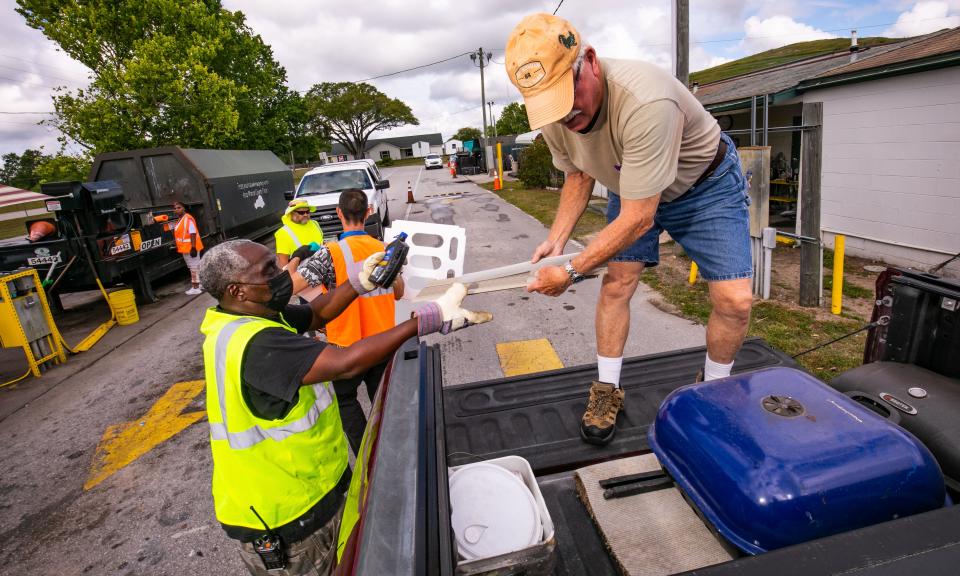
Under Marion County’s litter ordinance, people who litter are punishable by a civil penalty of $50, $250 and $500 for the first, second and third violation, respectively. Subsequent violations are deemed second-degree misdemeanors, punishable by a $500 fine and up to 10 days in jail or community service time.
The committee recommended “significantly” increasing the penalty for the first violation, making it mandatory that violators pick up litter, and adopting other definitions from the Florida Statutes.
“I think we all probably agree we could do more enforcement,” Gladson said, noting enforcement statistics were fairly low.
The committee also suggested using surveillance cameras for enforcement, landscaping medians on major roads, using more inmates for litter pickup, increasing the accepted items at landfills, creating an app for reporting violators, increasing Adopt-A-Road efforts and creating a shared database about prior violators for enforcement officials.
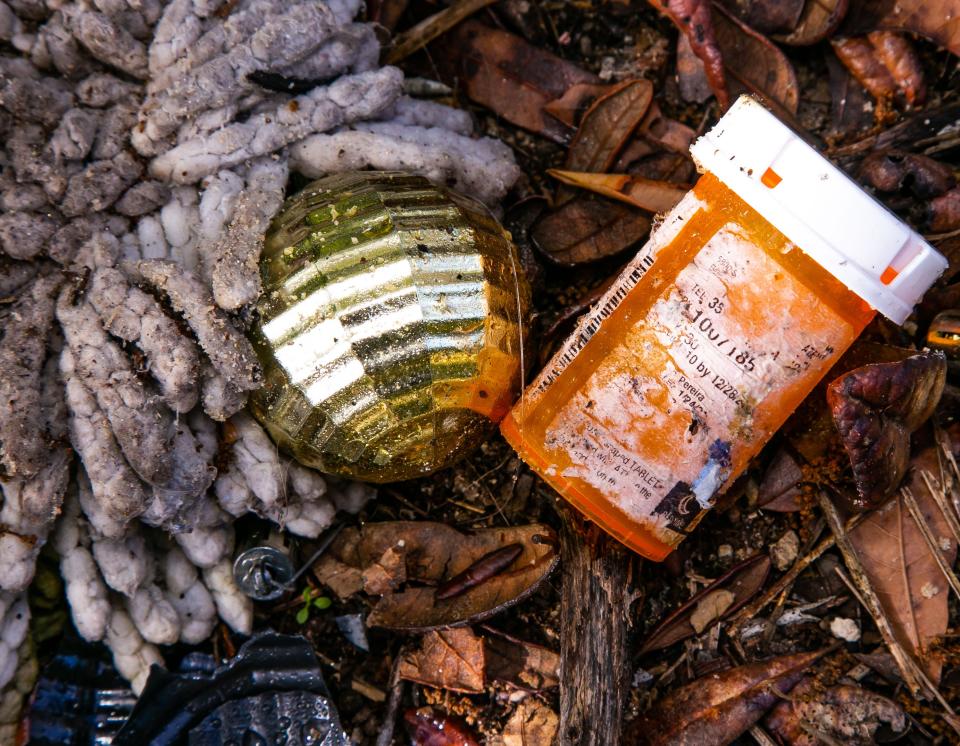
County commissioners generally supported extra enforcement measures and expressed interest in designating Solid Waste code enforcement officers the power to enforce the state’s litter law, which is stronger than the county’s.
Campaign will cost money up front but may pay for itself later
A Fiscal Committee, headed by Florida Express Environmental President John Paglia III, also analyzed projected expenses and the cost of creating a new drop site, possibly in Marion Oaks.
The committee recommended increasing penalties and encouraging more participation in the Adopt-A-Road program to supplement litter control costs, as only 4% of county roadway is currently adopted.
Baseline waste numbers were taken for 2021 and will be updated for 2022 to act as a benchmark for future years. Paglia noted that the county’s annual litter control cost is over $930,000, and the City of Ocala’s is over $1.2 million.
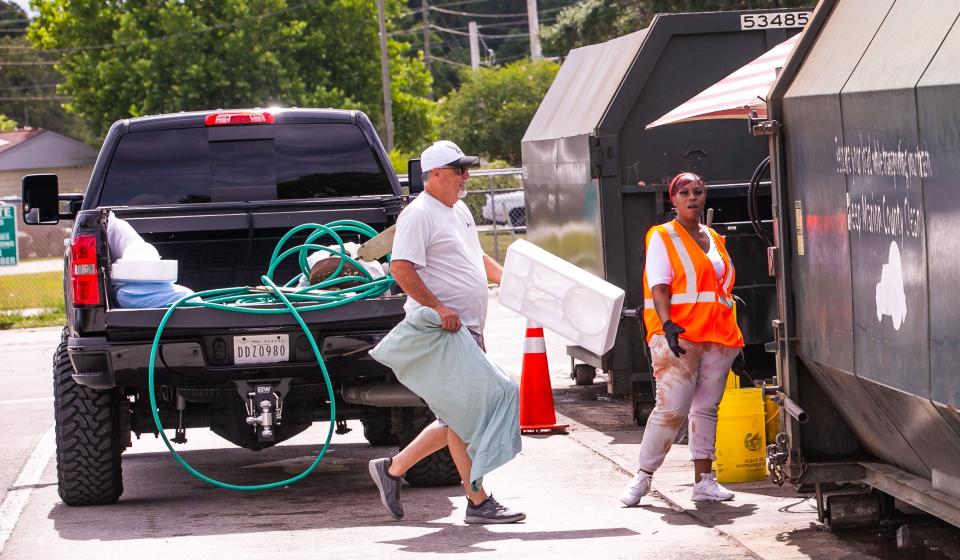
Curry noted $7,500 has been spent so far on the first phase of the campaign, up from the budgeted $5,000, mainly for marketing.
The Marketing Committee, led by U.S. Forest Service Natural Resource Specialist Antoinette Davis, researched other campaigns and pitched ideas for Marion County.
They are working with Neptune Advertising to create a full marketing campaign, which may include social media ads, radio ads, mailing stuffers, bus wraps, direct mail, park benches and trash cans.
The agency has already created multiple logo options for the "No Horsin’ Around with Marion" campaign.
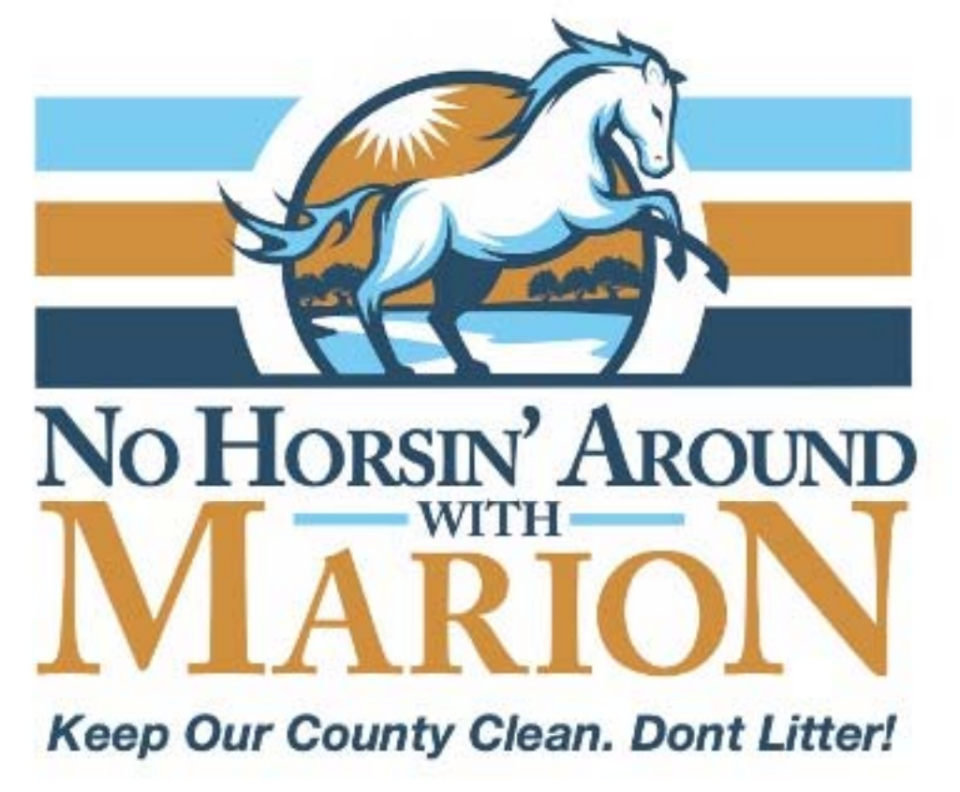
“We’re going to have to spend a little money out front, and then hopefully as time goes on, you know, be able to pull back somewhat,” Curry said, noting that Solid Waste already has a $50,000 annual advertising budget that goes largely unused.
As Tuesday’s gathering was only a workshop, the commission did not make any decisions but expressed support for many of the task force’s proposals. Any ordinance amendments may be presented to the commission at a public hearing in the future, and the board may approve other items in the coming months.
“I think there was a lot of great information that came out of (this workshop) that we’re going to be able to move forward with," Commissioner Kathy Bryant said over conference call at the meeting. "I see us really being able to make a measurable difference on this issue in our community.”
Contact reporter Danielle Johnson at djohnson@gannett.com.
This article originally appeared on Ocala Star-Banner: Marion County, Florida, gets serious about curbing illegal dumping

